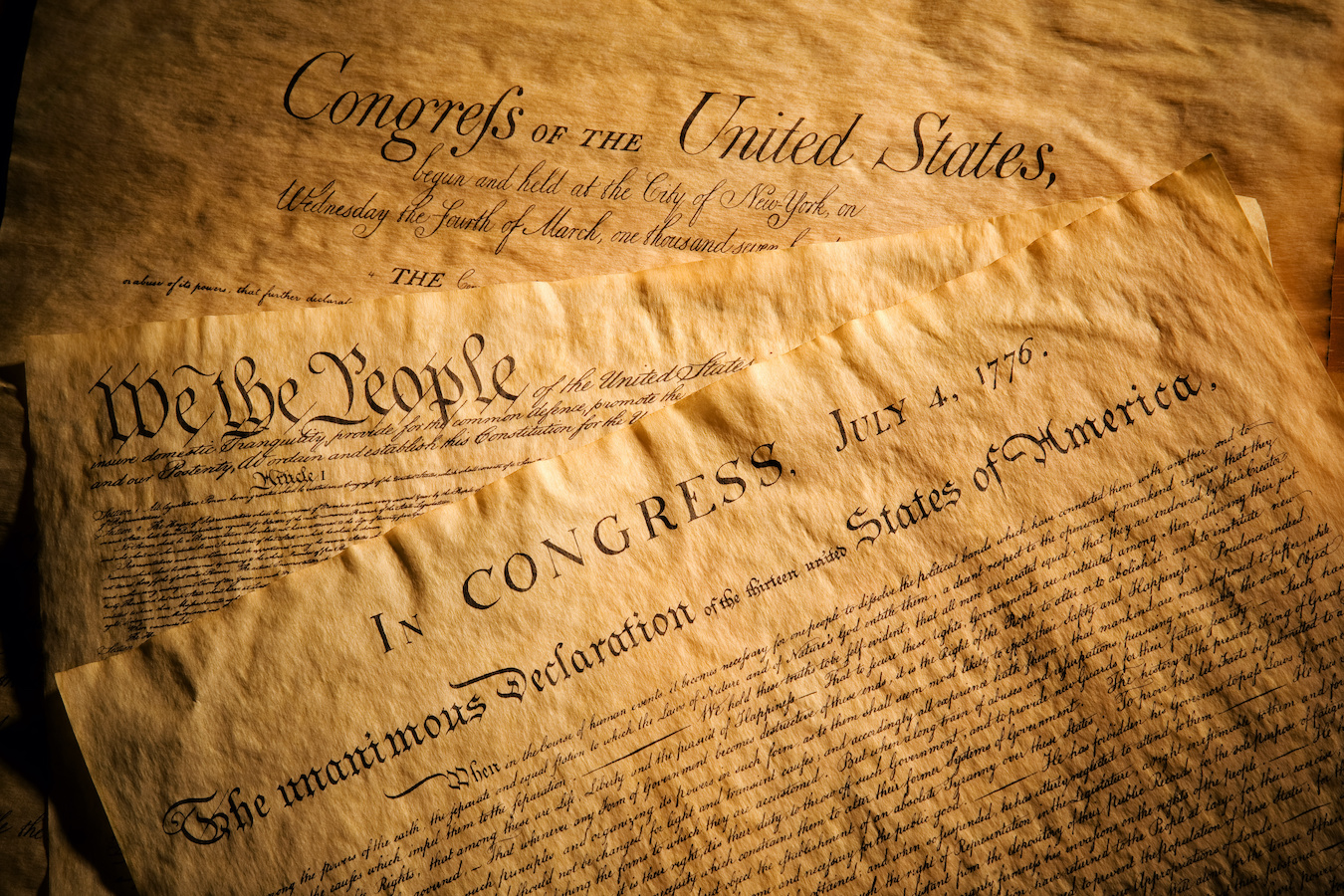When people talk about the Charters of Freedom, they are referring to the documents that laid the groundwork for both the American government and the American way of life. These documents are the Declaration of Independence, the United States Constitution, and the Bill of Rights. These sacred documents are housed in the Rotunda for the Charters of Freedom, a room that’s located within the National Archives. The National Archive building is located in the nation’s capital, Washington D.C., and belongs to the National Archives and Records Administration, which was formed in 1985. Opened in 1935, the building is located on Constitution Avenue. In addition to the Charters of Freedom, there is also a copy of the 1297 Magna Carta, one of the building blocks of the Bill of Rights. Other documents including the Louisiana Purchase document and the Emancipation Proclamation are housed there.
The Declaration of Independence
The Declaration of Independence is possibly the most important document in the history of the United States. After all, it’s the very reason there is a United States. In 1776, after years of oppression by the English government, the British-owned colonies signed a Declaration of Independence on July 4. The document declared that the colonies were no longer under British rule and dared the British to tell them otherwise. The document set off the American Revolutionary War, which lasted for eight years. Emerging victorious, America declared itself a free nation. The United States of America were then formed. Some of the most influential men in the history of the country – Thomas Jefferson, John Adams, Ben Franklin, and John Hancock among them – signed the document.
The Constitution
If the Declaration of Independence gave the US its freedom, it’s the constitution that guides it. The constitution acts as a sort of supreme law for the entire country. Every single branch of legal authority in the country answers to the constitution and the document provides the very framework for our government. In fact, the Constitution governs everyone from the President down to the most common man and provides a sort of guiding light for how the government should interact with and best serve its people. It was created on September 17, 1787 and ratified on June 21, 1788. The ratified version replaced the original Constitution, now known as the Articles of Confederation, and 39 delegates signed it into law.
The Bill of Rights
The Bill of Rights is equally important. It’s actually a part of the Constitution itself. The bill is composed of amendments to the Constitution. Created in 1789, it’s composed of ten amendments. It outlines the rights of every American citizen including the right to bear arms, freedom of religion and speech, outlaws cruel and unusual punishment, and even ensures that people accused of crimes receive a fair trial. The Bill of Rights was ratified on December 15, 1791.
Charters Information: Information about all the documents.
Official National Archives Website: Official archives website with images.
Document Links: Links to the documents.
Charter Care & Preservation: Explains how the documents are cared for.
Bill of Rights History: Explains the history of the Bill and how it came to be written.
Bill of Rights Acceptance: Discusses the process that went into ratifying the bill.
Document Resources: Provides links to good sources of information about the documents.
The Bill of Rights: Discusses the Bill of Rights and its importance.
Bill of Rights Image: An image of the Bill of Rights.
Constitution Main Page: The main page of the government’s Constitution website.
Introduction to the Constitution: Provides a good overview of the Constitution.
Document Images: Some images of the documents.
Consumer Bill of Rights: An example of how the Bill of Rights has evolved.
Bill of Rights Image: Image of the Bill of Rights
Creating The Bill of Rights: Discusses what went into making the Bill of Rights.
("Legal information found on this page does not constitute legal advice.")
